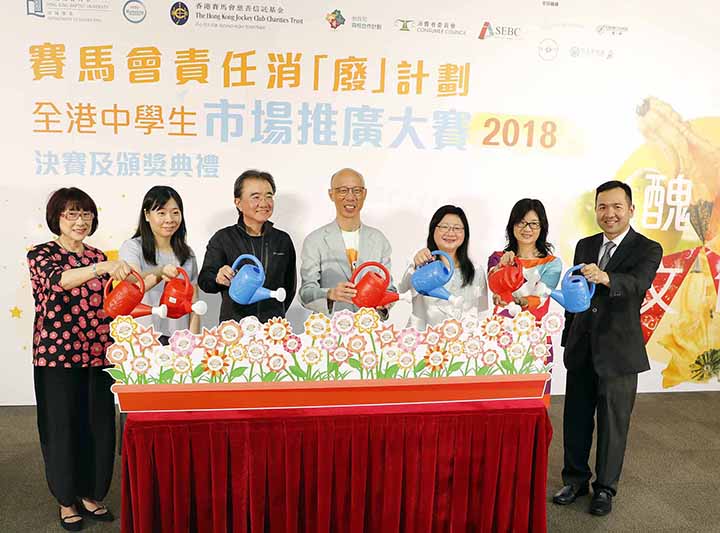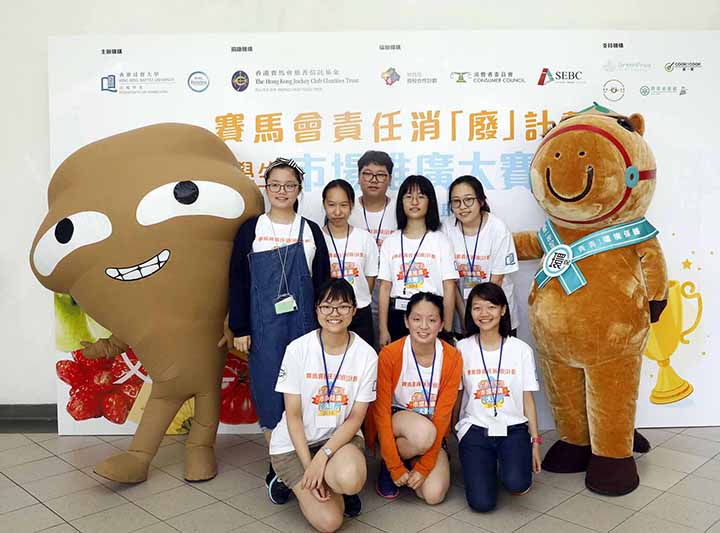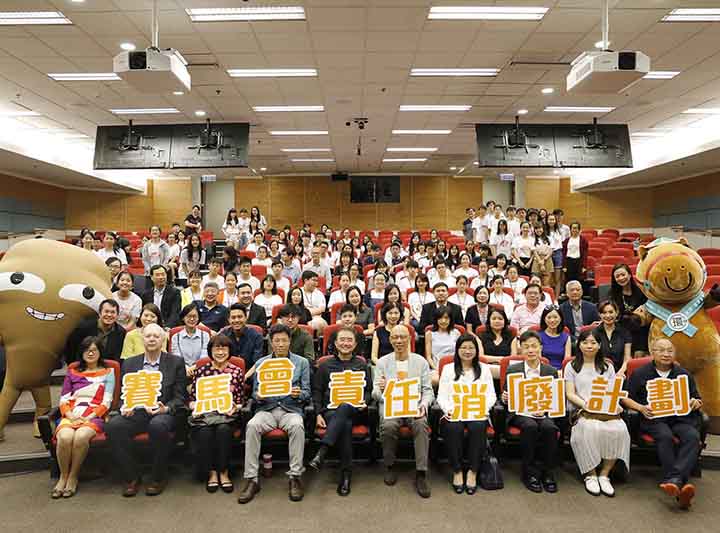

Community & Charities
Environmental Protection
Jockey Club Responsible Consumption Programme to promote more environment-friendly consumption culture
24/06/2018
The increasing popularity of online shopping and abundance of cheap priced commodities has exacerbated many people’s irrational consumption behaviour.
To help educate and engage the public in responsible consumption behaviour, the Club’s Charities Trust and the Department of Marketing of Hong Kong Baptist University (HKBU) have joined hands to introduce the Jockey Club Responsible Consumption Programme, a three-year public education project aimed at raising public awareness of responsible consumption in order to build a greener future for Hong Kong.
Three main themes have been selected for the programme: encouraging consumption of ‘ugly food’ (mis-shapen but edible food); reducing consumption of shopping bags and packaging materials; and encouraging the use of second-hand clothes and accessories. The programme involves a secondary school competition on responsible consumption marketing, a public education video programme and research on young people’s responsible consumption.
The interactive learning model of the Jockey Club Responsible Consumption Programme can encourage young people to adopt responsible consumption, as well as utilise the creativity and knowledge they have gained from the programme in promoting the topic to the public. In this way, they will absorb the values of responsible consumption and practise it in their daily lives. Using ‘ugly food’ as the main theme, the first secondary school marketing competition has attracted entries from some 150 secondary three to secondary five students.
In addition, a series of four 30-minute TV programmes will be broadcast each year, covering the three main project themes. The Department of Marketing of HKBU will conduct research on young people’s perception and understanding of responsible consumption, to examine their attitudes to responsible consumption and behavioural changes over the period of the project. The findings of this research will prove valuable in helping to develop a more responsible consumer culture in Hong Kong.





